China's stability will not be affected by Li Keqiang's death
Lianhe Zaobao correspondent Yu Zeyuan analyses the recent passing of former Chinese Premier Li Keqiang, and the comparisons people have drawn to the passing of former Chinese Communist Party (CCP) General Secretary Hu Yaobang.
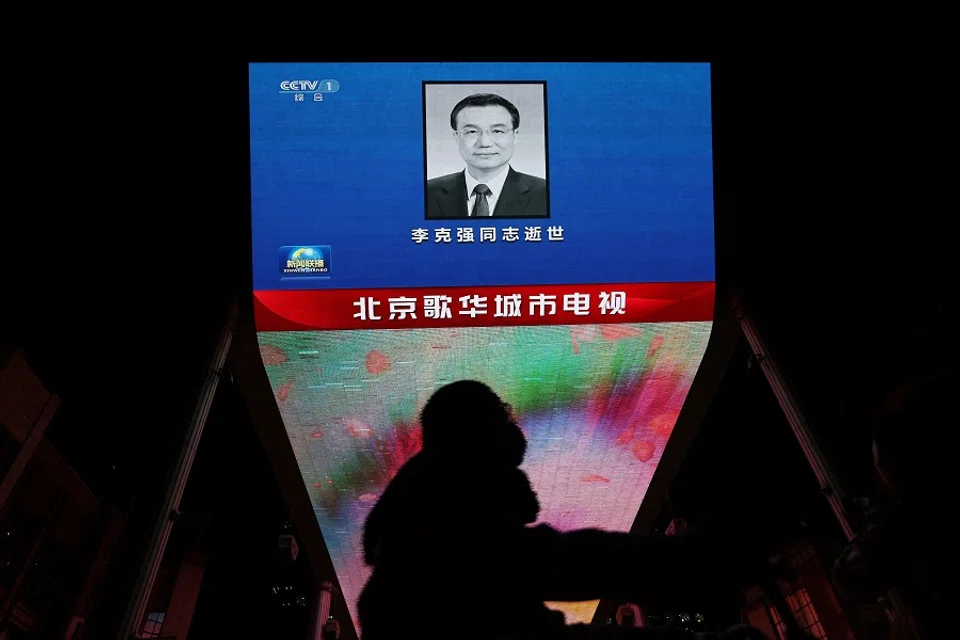
Former Chinese Premier Li Keqiang died in the early morning of 27 October, sparking reactions from China and the world, and raising questions about whether his sudden passing would affect China's politics and social stability.
Chinese state media reported at 8am on 27 October that Li was resting in Shanghai when he had a sudden heart attack on 26 October. Efforts to resuscitate him failed, and Li passed away on 27 October at 12:10 am in Shanghai at the age of 68. An obituary would be issued later.
Official reports revealed that due to "a sudden heart attack", Li passed after "all-out rescue efforts failed", clearly indicating that Li's passing was extremely sudden and surprising. "An obituary would be issued later" suggests that the authorities were somewhat caught off guard.
Obituary as closure
An official obituary is a political closure for a former leader. On the evening of 27 October, the official obituary was released, calling Li "an excellent CPC member, a time-tested and loyal communist soldier and an outstanding proletarian revolutionist, statesman and leader of the Party and the state." These statements were the exact words used to extol former Premier Li Peng when he died in 2019.
Comments from outside of China even linked Li's death with "conspiracy theories", with some commenting that Li's passing was similar to how former Chinese Communist Party (CCP) General Secretary Hu Yaobang passed in 1989...
Once Li's death was announced, related news searches rose to the top of Weibo's search lists. Evidently, the news of Li's death has rocked Chinese society. Shock, regret and remembrance have been the key emotions expressed by Chinese netizens towards Li's passing. While some comments hinted at Li's death being linked to his circumstances and his emotional state, such comments have largely been blocked and deleted.
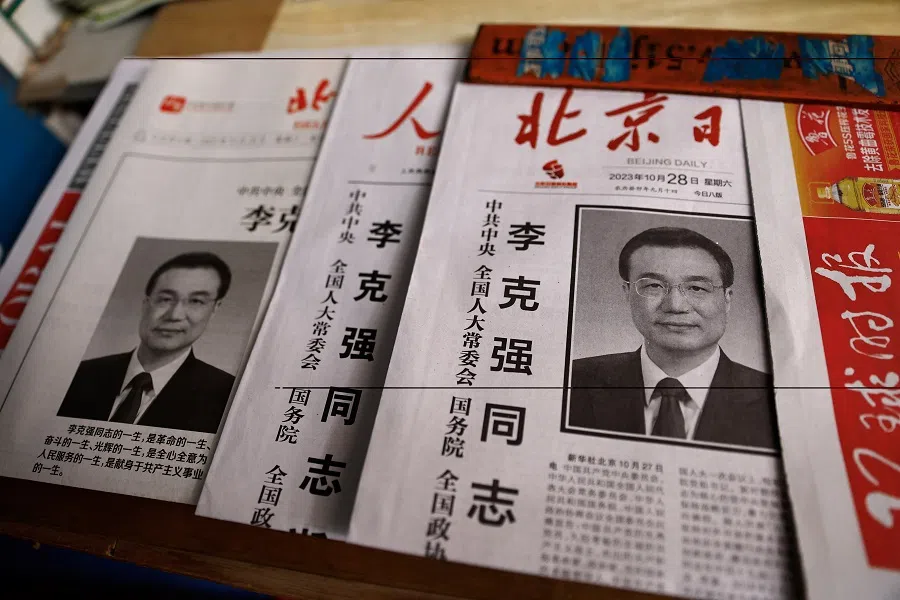
Mainstream Western media outlets like the New York Times and BBC were also quick to report on Li's passing, stressing that during his time in office, he was "eclipsed" by the paramount leader, even going so far as to claim that Li was "sidelined".
Comments from outside of China even linked Li's death with "conspiracy theories", with some commenting that Li's passing was similar to how former Chinese Communist Party (CCP) General Secretary Hu Yaobang passed in 1989, and that China's politics and societal stability could be affected.
Comparison with Hu Yaobang
On 15 April 1989, then CCP Politburo member Hu Yaobang died of illness in Beijing. Hu had taken over as CCP chairman from Hua Guofeng in 1981, and became CCP general secretary following the 12th Party Congress of the CCP in 1982. In January 1987, because of his handling of the student unrest and his weak opposition towards bourgeois liberalisation, he was lambasted by several elders in the party and was removed as CCP general secretary. Following the 13th Party Congress of the CCP in 1987, while Hu was still elected as a Politburo member, he had no real power.
Because Hu was open-minded, had a good reputation among the masses, and had made great contributions to reform and opening up, his death triggered a stronger backlash among intellectuals and students, and it was widely rumoured that Hu's death was due to unfair treatment. In mid- to late April 1989, some students from Beijing and other areas took to the streets to mourn Hu, which sparked the June Fourth incident that same year.
Li was gradually seen by outsiders as a marginalised premier who did not wield much power.
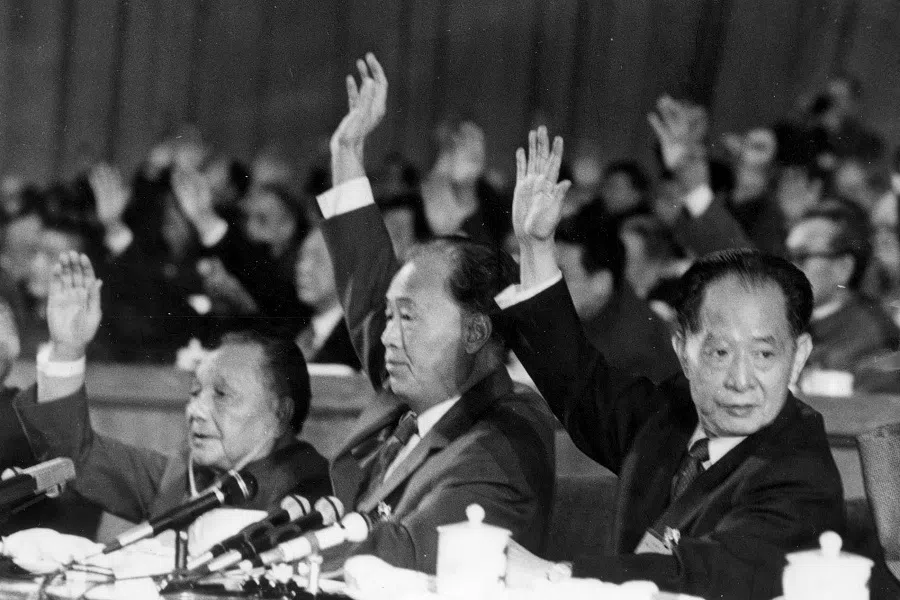
Like Hu Yaobang and Hu Jintao, Li previously headed the Chinese Communist Youth League (CYL). After the 1980s, the CYL gradually rose to prominence in China's political arena, with Hu Yaobang and Hu Jintao both ascending to top leadership positions.
Although Li was also once seen as a likely successor to China's top post, after the CCP's 17th Party Congress in 2007, he ranked lower than Xi Jinping in the Politburo Standing Committee (PSC). After the CCP's 18th Party Congress in 2012, Li became the second-ranked member of the PSC and began his decade-long tenure as China's premier from March 2013 to March 2023.
Li Keqiang's premiership
During Li's premiership, in an effort to change the Hu Jintao era of "nine dragons controlling water" (九龙治水, referring to power being held by a few key persons), China's top leader Xi Jinping gradually consolidated party, political and military power through various leading groups and special committees, reducing the State Council's function of managing the economy and society. Li was gradually seen by outsiders as a marginalised premier who did not wield much power.
During the CCP's 20th Party Congress in 2022, Li was left out of the new party Central Committee, indicating that he would be fully retiring from politics soon. This March, the National People's Congress confirmed Li Qiang as premier of the State Council, and Li Keqiang disappeared from the public eye.
...the younger generation today are no longer as interested in politics as the earlier generations, but care more about matters concerning their own interests.
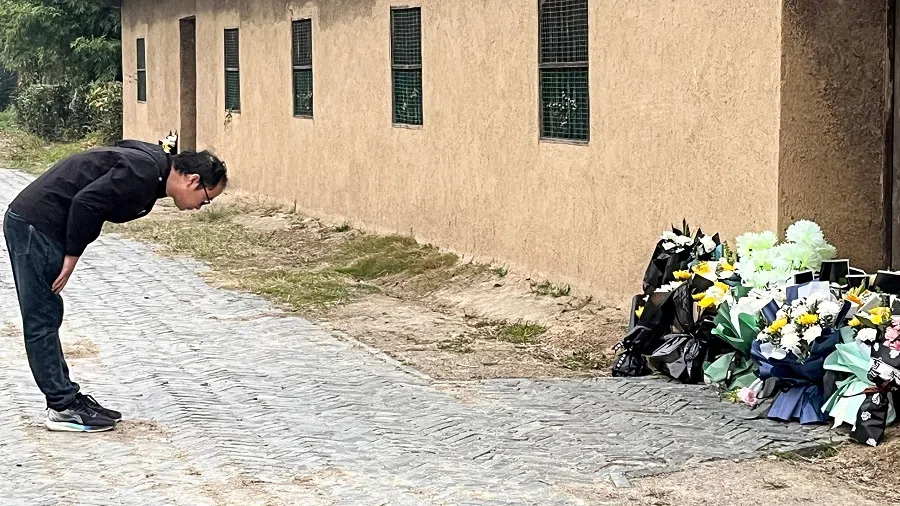
Like Hu Yaobang, Li Keqiang was also regarded by the Chinese public as an open-minded leader with a heart for the people. After Li's passing, the internet was flooded with quotes and images depicting his closeness to the masses. The mourning and remembrance of Li Keqiang are expected to dominate the Chinese public sphere over the next few days.
But unlike the 1980s, now there is no longer a clear struggle between reformers and conservatives in the CCP; the younger generation today are no longer as interested in politics as the earlier generations, but care more about matters concerning their own interests. At the same time, following the strengthening of ideological and political education in Chinese universities in recent years, it is difficult for students to say anything that is not in line with what the authorities want.
Thus, while Li's sudden death has triggered great interest within and outside of China, it is unlikely that this unexpected event will affect China's political and social stability in the same way that Hu Yaobang's death did.
This article was first published in Lianhe Zaobao as "李克强辞世引震动".


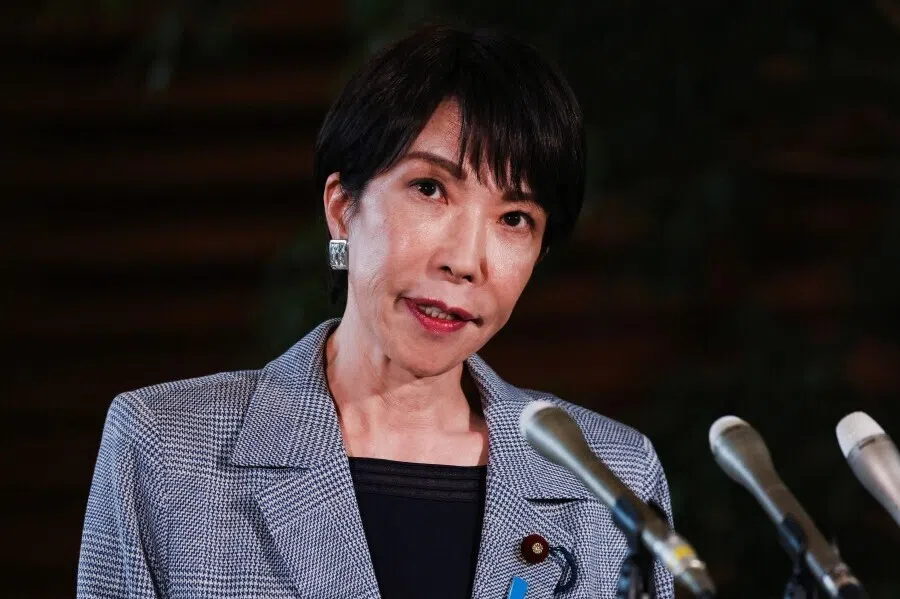
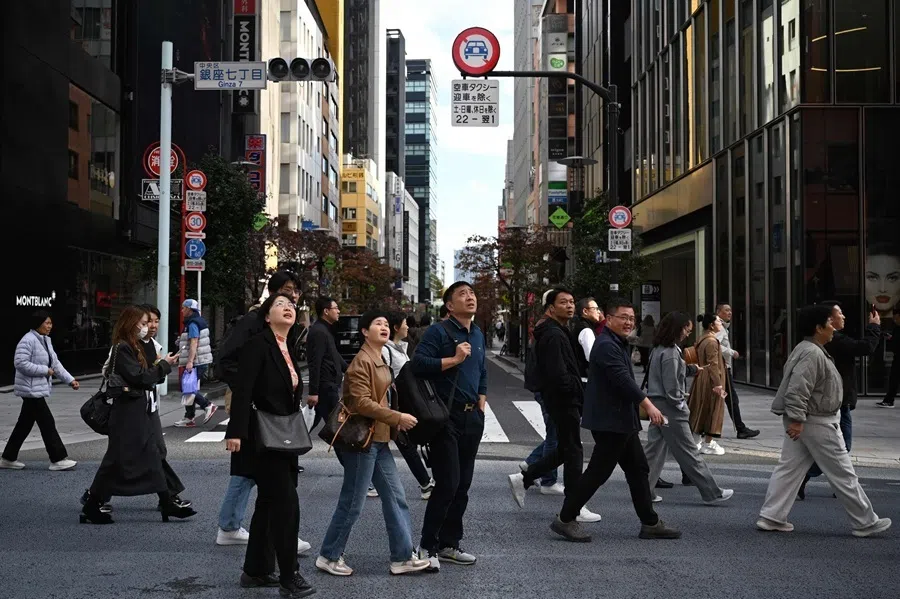
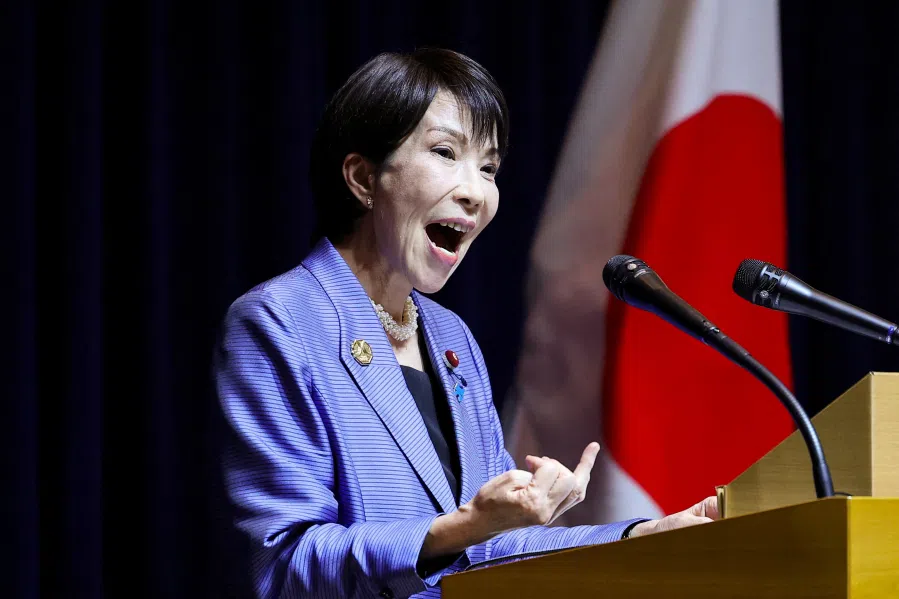
![[Big read] China’s 10 trillion RMB debt clean-up falls short](https://cassette.sphdigital.com.sg/image/thinkchina/d08cfc72b13782693c25f2fcbf886fa7673723efca260881e7086211b082e66c)